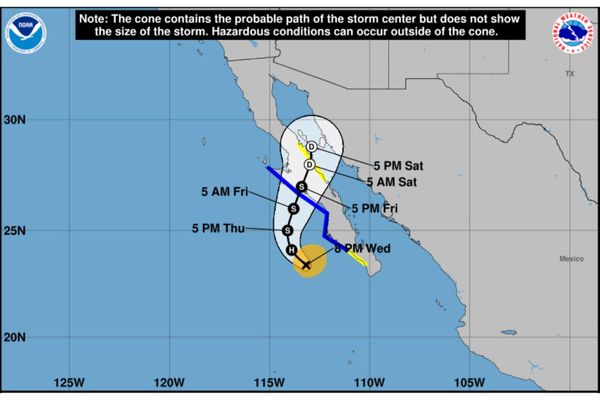When you think of Fidelity Investments, what probably comes to mind is stock picking. Mutual funds. And, of course, Peter Lynch, the former star manager of the Magellan Fund known for his "invest in what you know" slogan.
But a review of Fidelity mutual funds' performance highlights another key trait: benchmark-beating performance over the long haul.
Consider IBD's 2025 Best Mutual Funds Awards list, which spotlights mutual funds that have topped their respective benchmarks over the past one-, three-, five- and 10-year periods through Dec. 31, 2024.
For this year's list, Fidelity mutual funds take home a whopping 78 awards across nine different investment categories, ranging from U.S. diversified stock funds to U.S. taxable bond funds. That number of awards was two times greater than the closest fund family.
Fidelity joins 19 other fund companies in 2025 being recognized by IBD as Funds of the Decade. These fund companies won 10 or more awards in IBD's Best Mutual Funds for 2025 — the 10th year of our special report.
The others include Eaton Vance, with 26 awards; and J.P. Morgan, T. Rowe Price, Victory and Federated Hermes, each with 23 awards.
Read The Complete List Of The Funds Of The Decade
Beating The Mutual Fund Benchmarks For A Decade
Beating the market is notoriously difficult. Especially over multiple time periods. And, of course, not every Fidelity mutual fund made IBD's best funds list.
Still, the fact so many Fidelity funds did win awards presents the question: What's the X-factor behind that success?
Fidelity, which was founded nearly 80 years ago, has size, scale, and investment analysts and money managers around the world.
The fund giant eats and breathes stocks 24/7.
"It is the core part of our DNA," said Brian Enyeart, co-head of equity at Fidelity. "Equities have been our firm's flagship capability since we started."
Fidelity lets fund managers play to their strengths by giving them the freedom to pick stocks and run portfolios driven by their own investment philosophy and belief systems. Fidelity mutual fund managers learn and polish their craft by working in different aspects of the business early in their careers, such as analysts. They then grow into bigger responsibilities, such as running a sector fund. Finally, they are steered by management toward running larger, more diversified funds that are aligned with their investment style and personality type.
A Fidelity fund manager with a conservative streak who is more risk averse and value oriented, for example, won't be thrust into running an aggressive growth fund filled with disruptive companies.
"It's not that everybody can go off and do whatever they want," said Enyeart. "But fund managers have the freedom to define what's interesting to them. If you're the kind of person that likes to go shopping for used cars or on-sale bargains, you might be the kind of person who is a good value investor. We're not the type of shop where everybody has to come in and do it the same way."
See IBD's Complete Special Report On The Best Mutual Funds For 2025
Fidelity Mutual Funds' Managers Focus On Investors
Fidelity also looks to its fund managers to play a leading role in helping shareholders match their investments to their goals.
"The culture is extremely shareholder-focused," said Melissa Reilly, Fidelity's other co-head of equity. "We're continuously talking about the end client reaching their retirement goals. If you're using fund managers that win and win again, you're going to be able to retire earlier."
Active fund management also gives Fidelity fund managers the freedom to beat the market, rather than just match it like an index fund. And fund managers have a lot of help identifying the next Amazon or AppLovin. An army of analysts, strategists and experts in assets ranging from megacap companies to small-cap stocks and from leveraged loans to private markets provides a deep and broad level of expertise companywide.
Like a good football or hockey team, Fidelity has depth at all positions.
"We make sure we give managers the resources they need across our platform in order to generate alpha," or excess returns beyond their benchmark, said Reilly.
There is one thing all Fidelity mutual fund managers have in common. "They're all buying stocks they hope they can hold for a very long period of time," said Enyeart. "Managers are not making investment decisions just based on a quarter. We're looking at secular, long-term growth opportunities."
How Strategies Differ At Fidelity Mutual Funds
IBD caught up with two Fidelity stock fund managers with very different investment philosophies and strategies.
Sonu Kalra is manager of $63.9 billion Fidelity Blue Chip Growth (FBGRX) fund since 2009. Kalra seeks outsize returns by investing in stocks with growth rates that are peppier than the market but have a volatile streak. In the 10 years ended Dec. 31, 2024, Fidelity Blue Chip Growth has posted annual returns of 18.1%, topping the S&P 500's 13.1% gain by a full five percentage points.
The other is Ramona Persaud, manager of $291.3 million Fidelity Global Equity Income fund (FGILX) since 2012. Persaud has a self-admitted conservative streak. She runs the portfolio in a more risk-averse way. Persaud's style is to deliver alpha by capturing less downside risk than the benchmark her fund tracks but also performing well when markets are in bull market mode.
Persaud's fund has posted a smaller 10-year annualized gain of 8.91%, but it still topped its MSCI EAFE benchmark's 5.2% return, or nearly four percentage points better.
What both fund managers have in common is their funds made IBD's 2025 list of best mutual funds.
What's more illuminating is they beat their benchmarks executing very different investment strategies.
Persaud runs a global equity income fund, a product that investors buy to gain exposure to stock markets around the globe without taking outsize risks. Her penchant for weighing the downside risks and having a dividend yield that's in excess of the benchmark, while also seeking to top her benchmark, is a good fit.
See Which Stocks Just Came On — And Off — IBD Stock Lists
Fidelity Mutual Fund Helps Investors Capture The Full Return Potential
Fidelity Global Equity Income isn't run as if it's Fidelity Blue Chip Growth.
"Putting a more risk-loving sort of appetite on a strategy like this would not make sense," said Persaud. "Putting someone who thinks very much in terms of risk-adjusted returns makes more sense."
There is a benefit to running an equity fund with a lower-risk profile: it produces less volatile returns. And that means there is less of a chance investors will get spooked in a market downturn and sell at the bottom, says Persaud.
"The more I protect investors from volatility, the stickier they are in their portfolios, and the more I can help them (hold on and) capture the full returns of the fund," said Persaud.
Here's how Persaud explains the math of her strategy, which is designed to reduce downside capture. In up markets, Fidelity Global Equity Income captures 90% to 95% of the market's return. But on the downside, it only captures 75% or 85% of the drawdown. In short, she keeps most of the upside but loses less on the downside.
"I'll take up over down," said Persaud. "Looking at those two outcomes, all I really care about is the quotient between the two. I want to really maximize the spread between the difference between those two (capture) numbers."
Persaud likes stocks with a wide moat, or a sustainable competitive advantage that makes it hard for competitors to gain share. Cyclical businesses such as chip foundry Taiwan Semiconductor Manufacturing and big-box retailers are fund holdings with those traits, she says.
The key to Persaud's market-beating performance is summed up in one word: patience, she says.
Track New Buys By The Best Mutual Funds Each Month
The Value Of Buying Low At Fidelity Global Income
To manage downside risk, Persaud doesn't buy the stocks she likes when they're flying high. She buys when their valuation falls from, say, 25 times earnings to 15 times earnings. She also tends to own the lowest beta (e.g., the least volatile) names in every sector.
"It takes a profound amount of patience to wait for my price," said Persaud. For example, when a high-quality business like Taiwan Semiconductor drops due to fear of a clash between China and Taiwan, or slowing demand for chips, or worries about tariffs, Persaud pounces.
"That's when I will add to the position," said Persaud.
Most stocks in Fidelity Global Equity Income pay dividends. Persaud also invests in stocks that return cash to shareholders in different ways, such as buying back shares. For example, Persaud owns Google parent Alphabet. "It's 17 or 18 times earnings, which is really cheap for what it is, and it throws off so much cash that they often do buybacks," said Persaud.
Persaud says the key to her success and Fidelity's success is having a consistent philosophy and sticking to it.
"One of the things that really benefits the strategy is knowing exactly what I'm looking for and not deviating from that," said Persaud.
Fidelity Blue Chip Growth's Success-Based Investment
Sonu Kalra, manager of Fidelity Blue Chip Growth, seeks outsize returns with a willingness to take more risk, but is also mindful of position sizes. "It's a balance," said Kalra. "We're trying to manage the risk and reward but also optimize the portfolio."
Kalra's investing philosophy favors big companies in large markets that are growing faster than the broad stock market and can sustain their growth for a long time
Fidelity Blue Chip Growth adds value by investing when Wall Street is underestimating a company's growth rate and the durability of that growth. "The sustainability of growth is the core tenet of our investment philosophy," said Kalra.
The fund manager buys growth stocks in three buckets. He buys secular growers, or companies that can benefit from long-term trends, such as e-commerce, cloud computing and storage, artificial intelligence, and health and wellness. Kalra also buys cyclical stocks at the bottom of the business cycle when they're selling at cheaper multiples. The third bucket he dubs an "opportunistic" growth bucket. That includes "self-help stories such as a management change."
Kalra's investment time frame is long, often decades. What the great growth stocks like Apple, Amazon, and Starbucks have in common is they deliver healthy growth rates for years, he says. When shares of these leaders are temporarily depressed, Kalra adds to his position. "I try to take a step back and say, 'you know what, this company stumbled this quarter, but we think the long-term story is still intact, and the earnings power 30 years from now is still what we thought it was.'"
Wheel Effect: The Best Get Better
In the past 10 years, Kalra says his fund has profited from the megatrend he refers to as the consumerization of technology. "Technology has become much more like a consumer staple that we use every day," said Kalra.
Kalra is a big believer in the "wheel effect," or the notion that successful companies have even more opportunities to expand their business and keep growing.
His job, along with Fidelity analysts and other investment experts, is to identify these "winner takes most" stocks.
Kalra says that philosophy dates back to the Peter Lynch era back in the 1970s and '80s. Lynch would remind investors not to commit the investing error of selling their winners and holding their losers. The famed Magellan manager says that's akin to "pulling out the flowers and watering the weeds."
"I call it success-based investment," said Kalra. "Companies that are having success tend to continue having success."







